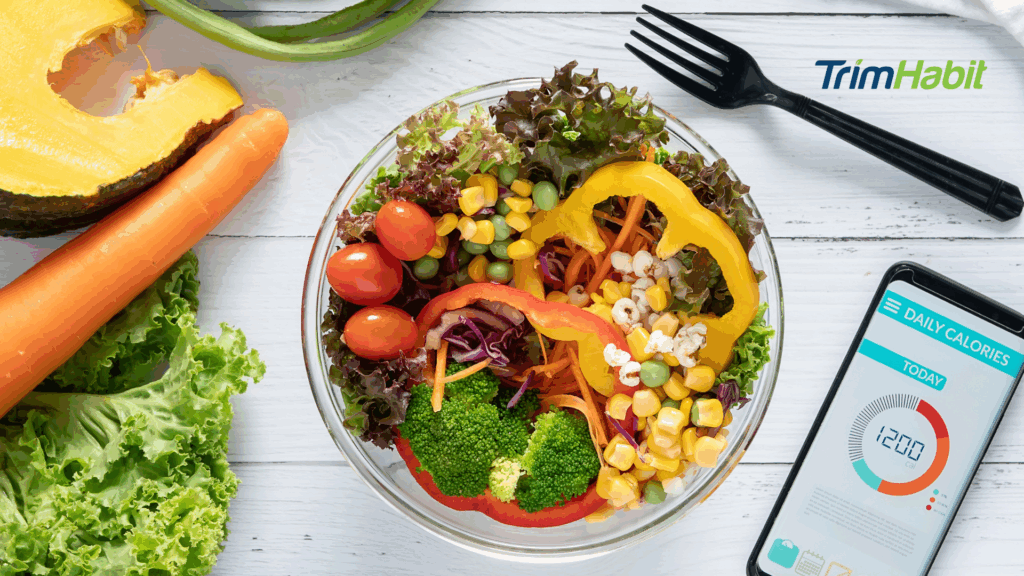Are you looking to shed a few pounds and get healthier? One of the first steps is to watch what you’re pouring into your cereal or coffee cup. The grocery store shelves are stacked with various dairy milk alternatives, which can be overwhelming. But don’t worry, we’ve got your back.
This article will break down the battle of the bottles: coconut milk vs cashew milk for weight loss. Guiding you toward the milk that not only aligns with your weight loss goals but also delights your taste buds and keeps you motivated on your path to a healthier you.
Coconut Milk And Cashew Milk
Filtered water and grated mature coconut flesh are used to make coconut cream, which is then used to make coconut milk. Despite its name, coconut isn’t technically a nut. Therefore, those who have nut allergies can consume it without risk.
Coconut milk frequently includes additional thickeners and other additives, much like other plant-based milk substitutes.
In contrast, cashew milk is a relatively recent addition to the world of dairy milk alternatives. Originating from the cashew nut, this milk has gained popularity more recently as a result of the growing interest in plant-based diets.
Cashew milk’s neutral, slightly nutty flavor and creamy texture have made it a versatile choice in both cooking and beverages. It offers a lighter alternative to traditional dairy and is often used in vegan and lactose-free recipes, appealing to those seeking a dairy-free, nut-based milk with a mild taste profile.
Coconut Milk vs Cashew Milk For Weight Loss
Both coconut milk and cashew milk offer nutritional value, but it is important to note that they are not created equally. Be aware that some store-bought versions might include extra sugars, preservatives, and other additives that can mess with how nutritious they are.
To make the best choice, pay attention to the labels. Go for unsweetened, organic, and minimally processed options whenever you can.
Here’s a breakdown for comparison of both drinks for weight loss and their nutrients:
Calorie Count
Research shows that coconut milk packs more calories per serving than cashew milk. On average, a one-cup serving of canned coconut milk contains approximately 552 calories, most of which come from fat1.
On the other hand, one cup of unsweetened cashew milk (depending on brand) has approximately 156 calories2. This means that if you’re counting your daily calorie intake, you should be mindful of how much coconut milk you use.
Fat Content
When it comes to fat content, cashew milk tends to be the leaner choice. Cashew milk has 5.2g monounsaturated fats per 100g serving2. Studies also indicate it contains less saturated fat than coconut milk1,3.
The fat content in coconut milk is mainly composed of more saturated fat, which has been a subject of debate regarding its impact on weight loss. Some studies suggest that not all saturated fats are equal, and the specific types of fats in coconut milk, such as medium-chain triglycerides (MCTs), may have distinct metabolic effects4.
However, it’s crucial to be mindful of your saturated fat intake, as excessive consumption can potentially hinder your weight loss journey5.
Carbohydrates
According to USDA, coconut milk has fewer carbohydrates compared to cashew milk. One cup of coconut milk has 2.92 g, while cashew milk has 5.73 g1,2.
Protein and Fatty Acids
Protein is essential for weight loss as it helps you feel full and supports muscle growth. Cashew milk generally contains more protein and fatty acids than coconut milk. One cup of coconut milk has 2.92 g of protein, while cashew milk has 5.73 g1,2.
Vitamins
Both coconut and cashew milk can offer some vitamins, but cashew milk contains more B vitamins, which are crucial for energy metabolism. On the other hand, coconut milk can be a good source of vitamin D, which is essential for bone health1,2. Your choice might depend on which vitamins you need more in your diet.
Minerals
In terms of minerals like calcium and magnesium, coconut milk tends to have more calcium, which is essential for strong bones. Magnesium, however, is generally found in higher amounts in cashew milk1,2, which plays a role in muscle function and overall health.
Antioxidants
Antioxidants are great for overall health, and there’s little to no difference in antioxidant content between coconut and cashew milk. Hence, you can confidently choose either for their antioxidant benefits.
Dietary Fiber
Fiber is your friend when it comes to weight loss. Cashew milk is better in this department, offering more fiber than coconut milk1,2. Fiber keeps your digestive system happy and can help you feel full longer.
Coconut Milk: Health Benefits And Risks
Coconut milk offers a wide array of health benefits. However, there are also possible downsides to consuming this milk.
1. Antioxidants
Antioxidant phenols can be found in coconut milk. The body can ward off disease by using antioxidants to fight or eliminate free radicals.
According to studies, the phenolic component of coconut may help shield the body’s lipids, proteins, and DNA against oxidative stress-related damage that may lead to cancer and heart disease6.
2. Antimicrobial for Fighting Infection
Coconut has lauric acid that is antimicrobial and anti-inflammatory, suggesting that it may help support the immune system7.
Other researchers discovered that lauric acid causes breast and endometrial cancer cells to undergo apoptosis or cell death, which raises the possibility that it can stop the growth of cancer cells8.
However, coconut milk contains a small quantity of lauric acid, which may be insufficient to claim that it prevents cancer.
3. Promote Weight Loss
Medium-chain triglycerides, or MCTs, are fats found in coconut milk. MCTs promote energy through promoting thermogenesis or the generation of heat.
According to research9, MCTs may aid in the following:
- lower body weight and fat accumulation
- lead people to experience prolonged fullness after eating
- to improve insulin sensitivity, which may help with weight loss
- enhance your physical endurance
4. Allergies
Even though coconuts are often thought of as tree nuts, they’re fruits. Note that if you’re allergic to tree nuts, it doesn’t automatically mean you’ll be allergic to coconut-based products.
Studies indicate that allergies to coconut are not expected10. However, a review from 2020 did raise a cautionary flag, suggesting that when an allergic reaction to coconut does happen, it can be pretty severe. Additionally, individuals of Black and Asian American descent may have a slightly elevated risk of being allergic to coconut11.
If you have a coconut allergy, it’s crucial to steer clear of coconut milk to stay safe.
Cashew Milk: Health Benefits And Risks
If you’re dealing with lactose intolerance or dairy allergies, cashew milk is a great choice instead of regular dairy. It’s not as high in calories, but it still has a nice, creamy texture compared to soy, rice, or almond milk.
Here are some health benefits and possible risks when consuming cashew milk:
1. Eye Health
If you include cashews in your diet, especially when using them in their raw form for making cashew milk, you’ll get a good dose of antioxidants like lutein and zeaxanthin12. These antioxidants are great for lowering your chances of developing long-term eye problems, particularly age-related macular degeneration and cataracts13.
2. Strong Bones
If you fortify it, cashew milk can give you as much as 30% of your daily calcium needs. This mineral is crucial for making your bones strong and making sure your muscles and nerves work well14.
3. Improves Heart Health
Having cashew milk in your drink isn’t just about adding flavor and making you feel full; it might also help your heart. Research indicates that eating plant-based monounsaturated fats like those found in cashew milk reduces the risk of heart disease15.
4. Nuts Allergy
Cashew milk might not be the best choice for everyone. Since cashews fall into the nine most common food allergens, they account for about 90% of all food allergies16.
5. Possible Weight Gain
Avoiding cashew milk with added sugars is the best option to avoid gaining weight. If possible, opt for homemade cashew milk instead of store-bought cashew milk. Sugary drinks have a history of being connected to weight gain. Reducing sugary beverages can help reduce obesity and related health issues17.
Plant-Based Milks Alternative To Dairy Milk
- Oat Milk: Oat milk naturally contains nutrients, including iron, essential for preventing anemia, and potassium, which supports healthy blood pressure levels.
- Hemp Milk: Hemp milk is made of hemp seeds, renowned for their rich nutritional profile and potential health benefits, including an abundance of omega-3 fatty acids for heart health.
- Almond Milk: Almonds are pulverized, and purified water is used to make almond milk. It could also include thickeners and starches to increase its consistency and shelf life.
- Rice Milk: Rice milk is made from milled rice and water. Like other alternative milk, it frequently contains additives to improve consistency and shelf stability.
- Soy Milk: Filtered water and soybeans are used to make soy milk. It is often fortified with essential vitamins and minerals that are vital for bone health.
- Macadamia Milk: Macadamia milk is made from macadamia nuts and filtered water and is an excellent source of Vitamin D and calcium.
Final Thoughts
Ultimately, the choice is yours whether you will consume coconut milk or cashew milk for weight loss. Your choice should be tailored to meet your individual needs and align with your specific goals.
If you want a creamy, low-calorie option with added vitamins, cashew milk might be your go-to milk. It’s got less saturated fat, more protein, and can be kinder to your waistline.
Conversely, if you crave that rich coconut flavor and don’t mind a few extra calories, coconut milk can still be a part of your weight loss journey. Remember to watch your portions and be mindful of the coconut milk nutrition.
Bear in mind that other nut milks, like almond, soy, and oat milk, are also excellent plant-based alternatives to cow’s milk. Plus, if you have a dairy allergy, all these plant milks are your friends, offering a dairy-free option that won’t leave you feeling bloated.
So, whether you go for creamy cashew milk, thick coconut milk, or explore other plant milks, the key to successful weight loss is to stay informed, maintain a balanced diet, and find the milk that suits your taste buds and your health goals.









